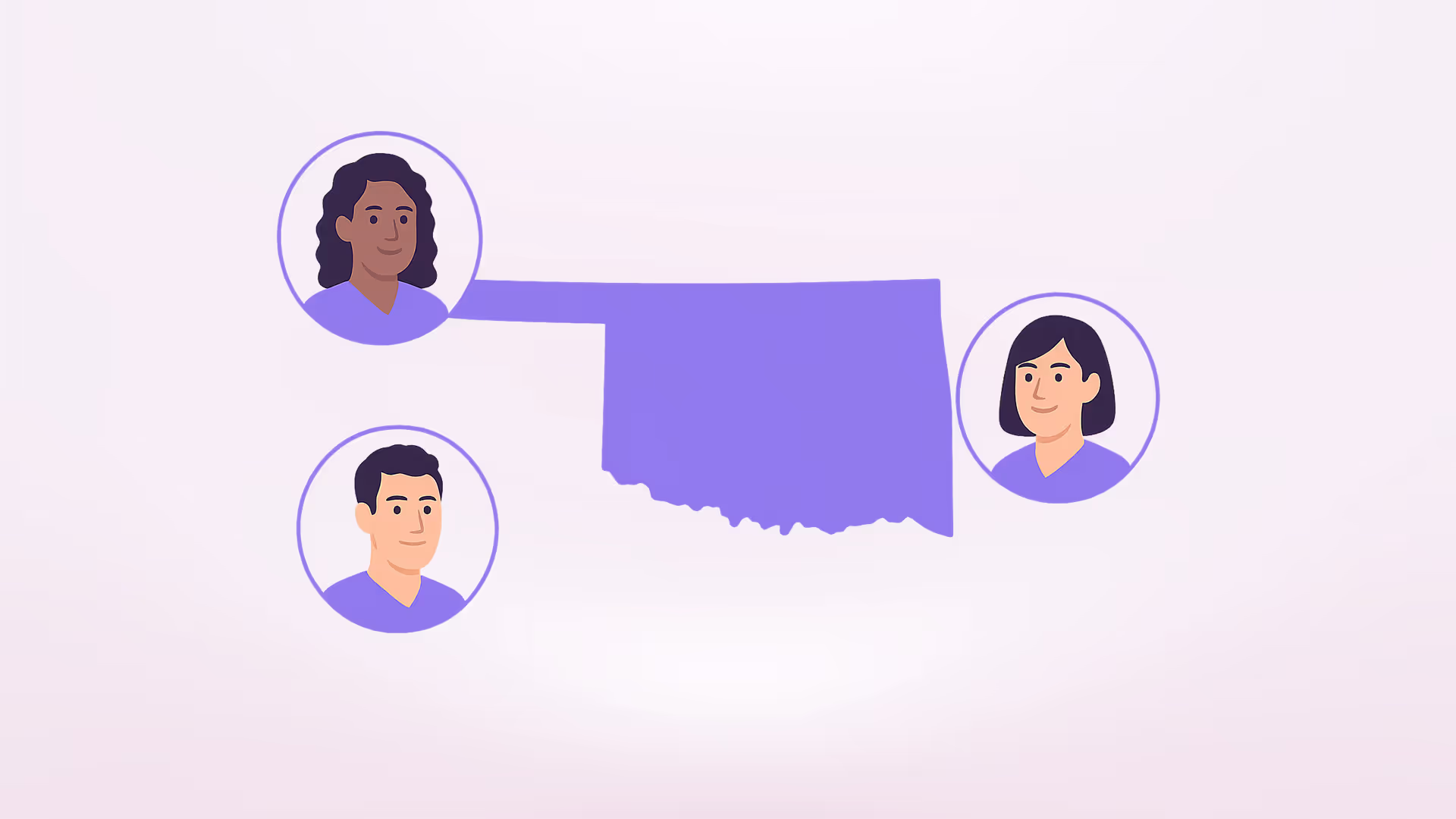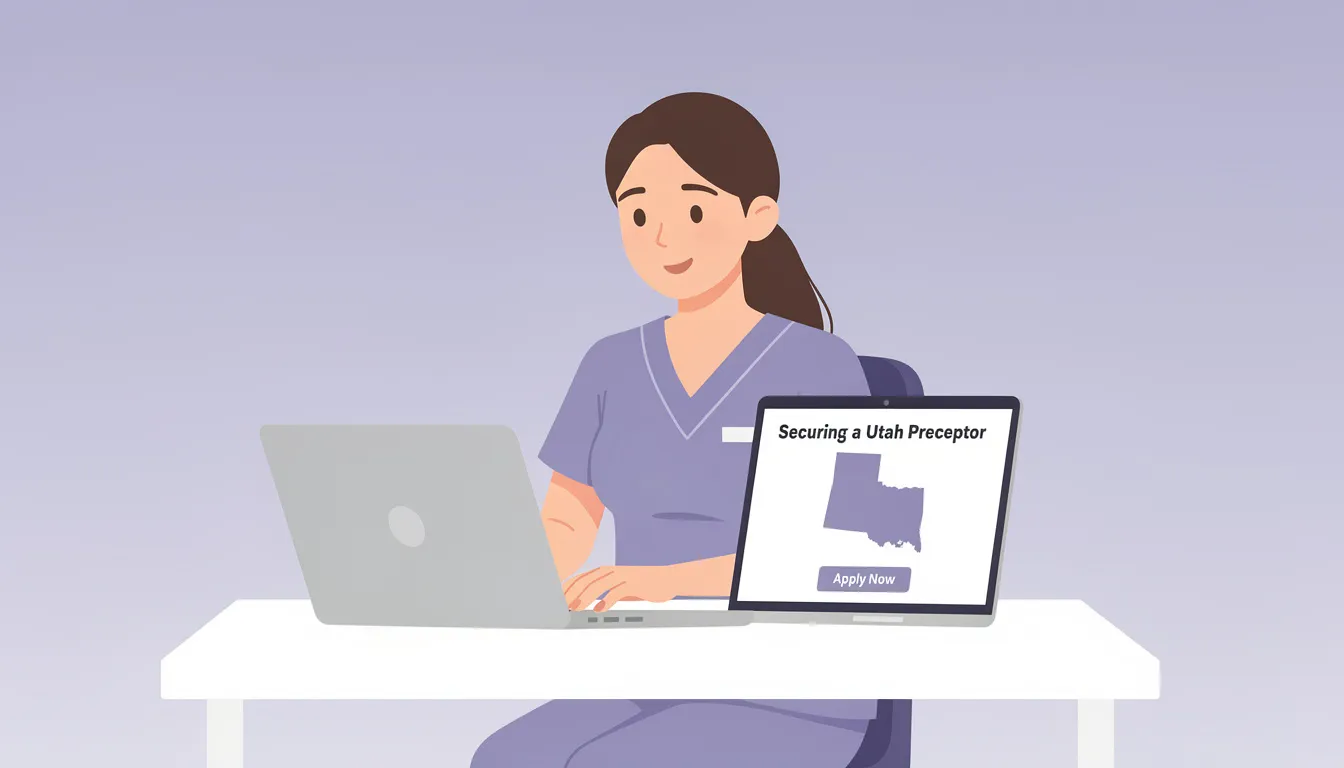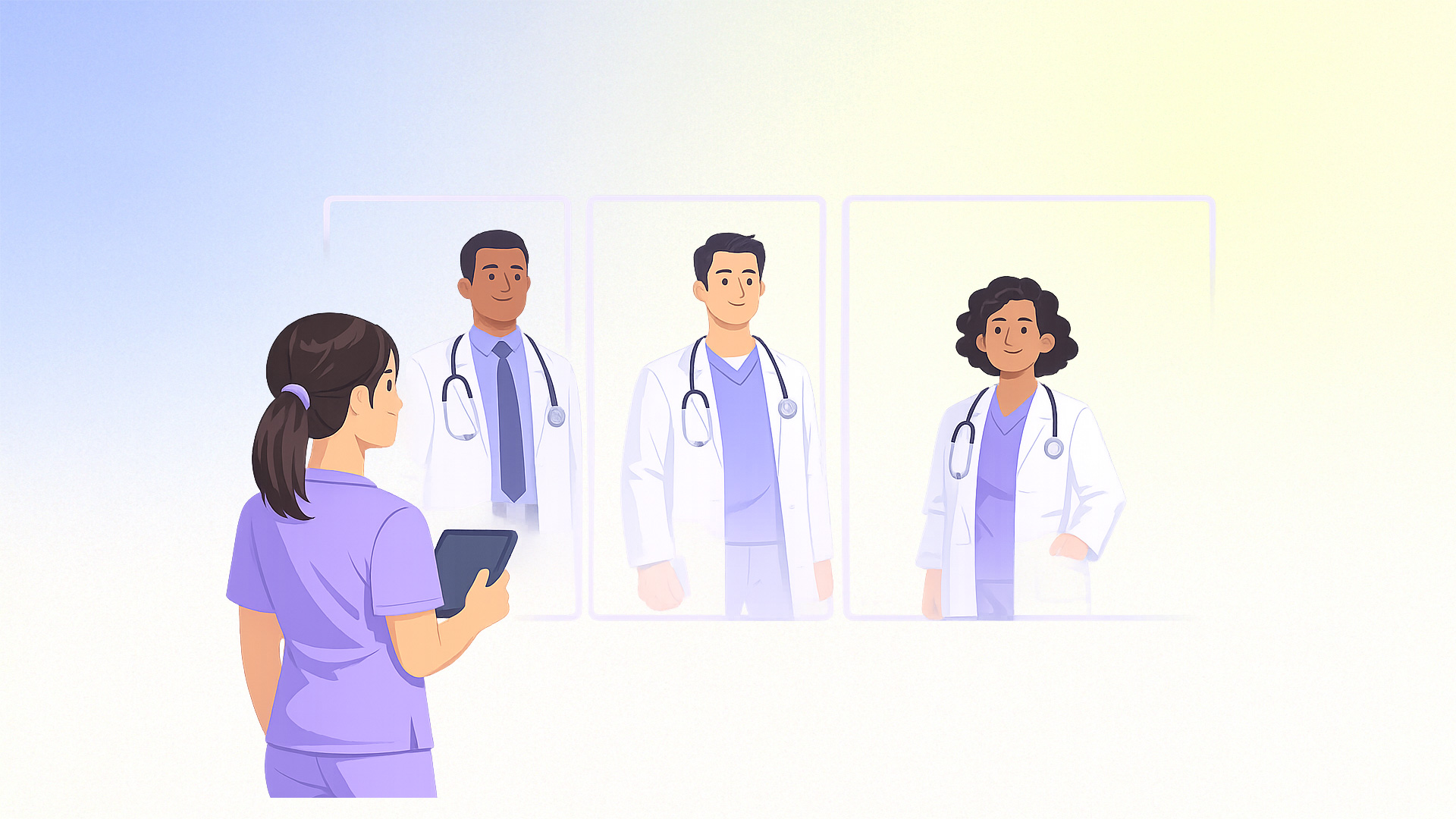You can find NP preceptors in Oklahoma City by combining direct outreach to clinics with support from preceptor matching services. While many students try the DIY route through emails, calls, and networking, the most reliable way to secure a placement is by using a vetted service like NPHub that connects students with available preceptors.
What NP Students in Oklahoma City Need to Know Before Starting Their NP Preceptor Search
As a nurse practitioner student in Oklahoma City, you’ve probably realized how tough it is to secure your clinical rotations. With more students entering programs each year and a limited number of preceptors in primary care, mental health, and family practice, the competition is intense.
Many registered nurses working toward advanced practice degrees say this is the hardest part of their education. Between your job, coursework, and family, the idea of sending endless requests, waiting for feedback, and watching deadlines get closer can feel overwhelming. And when your graduation depends on it, the pressure is real.
At NPHub, we understand exactly what you’re going through. That’s why we’ve built a service that connects students in Oklahoma City with vetted preceptors and gives you the support you need to stay on track. Want to start moving closer to graduation with confidence? Creating a free account with us is the first step to exploring your options and feeling more in control of your clinical placement journey.
Finding NP Preceptors in Oklahoma City
If you’re a registered nurse working toward your MSN or DNP, you already know that securing clinical rotations is one of the hardest parts of your NP journey.
In Oklahoma City, the challenge is even greater. With so many students applying to local programs, limited preceptor availability, and growing clinical needs across the community, finding Oklahoma City NP preceptors has become a major barrier to graduation.
According to the Oklahoma Board of Nursing, there are 5,468 licensed nurse practitioners in Oklahoma, a 37.5% increase over the last five years. Each year, hundreds of new applicants enter NP and DNP programs, adding pressure to an already competitive system.
In 2024 alone, 186 students were admitted to APRN programs, but only 99 students graduated, showing how bottlenecks, including difficulty securing clinical placement, can delay career goals for many.
Oklahoma City is home to major healthcare employers like OU Health, SSM Health, and Mercy, which provide essential services across the lifespan, from health promotion and chronic disease management to mental health and primary care.
On paper, these facilities should offer abundant opportunities for family nurse practitioners and specialty rotations. But in reality, many preceptors are juggling full patient care, telehealth services, and multiple roles across departments, leaving little bandwidth for training students.
For NP students, this means sending endless requests to clinics, waiting for feedback that never comes, or being told that preceptor slots are already filled. Even highly qualified applicants with strong letters and applications face uncertainty. Without structured support, graduate nursing students in Oklahoma City risk missing deadlines, which can delay their ability to advance in their education and career.
And the emotional toll is real. Between work, coursework, and family responsibilities, trying to connect with preceptors on your own can feel like a full-time job. It’s easy to feel unsure, out of control, or even defeated when every email or site visit leads nowhere. But here’s the truth: the problem isn’t your qualifications—it’s the system.
Oklahoma’s nursing education programs produce excellent future providers, but the gap between students’ clinical training needs and available preceptors continues to widen. Until more clinical opportunities are created, students need reliable tools and resources to secure rotations, stay on track, and build confidence as they learn to assess, treat, and care for patients across specialties.
If you’re tired of feeling like every email goes unanswered, NPHub gives you a way forward. By creating your free account, you can explore available Oklahoma City preceptors, see your options clearly, and finally take back some peace of mind in this stressful process.
Why It’s So Hard To Find Oklahoma City NP Clinical Rotations
The search for a clinical preceptor can feel like a full-time job on top of everything else. Students spend weeks sending emails, leaving voicemails, and submitting packets, only to hear back with silence or rejection. It’s not for lack of effort—it’s because the system is working against you.
Here are some of the biggest reasons why:
- Too many students, not enough preceptors. Every semester, new cohorts from OUHSC, UCO, OSU-OKC, and Oklahoma City University enter the field. While this is great for Oklahoma’s long-term healthcare workforce, it creates a flood of students all looking for family nurse practitioner, primary care, or mental health rotations at the same time. The number of available preceptors simply hasn’t kept up.
- Burnout is real. Many nurse practitioners in Oklahoma City are already stretched thin—seeing full panels of patients, covering multiple sites, and now managing telehealth visits on top of in-person care. Even those who want to teach often have to say no because they don’t have the bandwidth to supervise.
- Schools can’t always help. Some nursing programs offer placement assistance, but many leave the responsibility on the student. That means you’re expected to search, submit applications, and follow up with clinics on your own, usually while still working as a registered nurse and finishing coursework.
- Specialty bottlenecks. It’s one thing to find a primary care preceptor. It’s another to secure rotations in specialties like women’s health, mental health, or pediatrics—fields where preceptors are fewer in number and often booked months in advance.
- Geographic saturation. Students who want to stay close to home in Oklahoma City or nearby areas like Edmond, Norman, or Midwest City face the highest competition. These locations attract students from all over the state, not just local programs, which means preceptors here are contacted nonstop.
The result? Students who are more than qualified are left waiting, worrying, and wondering how they’ll complete their clinical requirements on time. And when graduation, licensure, and your career depend on it, that uncertainty can be crushing.
If this sounds familiar, you don’t have to keep pushing against the same wall alone. Creating a free NPHub account lets you explore available preceptors in Oklahoma City and start moving toward a placement without the constant dead ends.
What to Do in This Situation: The DIY Route vs. Getting Support
When you hit wall after wall trying to find a clinical preceptor you really only have two paths forward: the DIY route or finding support.
1. The DIY Route
Most students start here, sending cold emails, calling clinics, or even visiting offices to drop off packets. Some also try networking through coworkers, professors, or local nursing events.
- The upside: If it works, you save money and make a direct connection with your preceptor.
- The downside: It takes an incredible amount of time and persistence. Emails often go unanswered, phones go straight to voicemail, and clinics may tell you they’ve already accepted students for the semester. Many students describe it as “another full-time job” stacked on top of coursework, shifts, and family life.
This “DIY route” can work, but it requires a lot of persistence and patience. Here’s what it usually involves:
- Cold outreach: sending dozens (sometimes hundreds) of emails and calls to clinics in primary care, mental health, women’s health, and other specialties.
- Paperwork preparation: keeping your compliance documents ready—immunizations, CPR, background checks, liability insurance, and program forms—so you can send them quickly if someone shows interest.
- Networking: asking coworkers, professors, or colleagues if they know a family nurse practitioner or provider open to precepting.
- Follow-ups: calling back clinics and resending emails when there’s no response, often multiple times.
- Flexibility: being willing to travel outside of Oklahoma City—to Norman, Edmond, or Midwest City—if metro preceptors are already booked.
This approach gives you control and sometimes helps you build direct relationships with preceptors. But it’s also time-consuming and emotionally draining, especially when every unanswered email feels like a setback.
Mini-Guide: 5 Steps to Finding Your Own Preceptor in Oklahoma City
If you decide to take this path, the key is to stay organized and persistent. It’s not impossible to find your own preceptor, but it does take structure. Here’s a practical framework to help you approach the process.
Step 1: Make Your Preceptor Packet Ready
Before sending a single email, you need to have all of your documents in order. This usually includes your updated resume, compliance records like immunizations and CPR certification, your liability insurance, and any school-specific paperwork that needs a preceptor’s signature. In Oklahoma City, competition is high, so being prepared makes you stand out. If a preceptor shows interest and you can send everything immediately, it shows professionalism and saves them time—a quality they’ll appreciate.
Step 2: Create a Target List of Clinics
Instead of randomly calling clinics, focus your search. Make a list of sites that match your program’s requirements for clinical rotations. In Oklahoma City, this usually means starting with primary care clinics, internal medicine practices, women’s health providers, or mental health services. Once you’ve worked through the metro, be open to expanding into nearby cities like Edmond, Norman, or Midwest City, where competition might be slightly less intense. The more intentional your list, the less time you’ll waste contacting sites that don’t fit.
Step 3: Write a Professional Outreach Email
Your first impression matters. Keep your email clear and professional: introduce yourself, state the rotation you need, and explain your availability. Most importantly, reassure them that you already have your compliance paperwork ready and that your university will support them with documentation. Many providers hesitate because they think supervising a student means more work—your message should show that you’re prepared and that the lift on their end is minimal.
Step 4: Follow Up Strategically
up with another email or phone call. If you still don’t hear back, it’s okay to try one more time, but then move on. Preceptors and clinics in Oklahoma City are incredibly busy, and persistence is necessary—but you also need to respect their time and avoid burning bridges. Keep a steady rhythm of follow-ups so your request doesn’t get lost in their inbox.
Step 5: Track Every Contact
It’s easy to lose track once you’ve reached out to dozens of clinics. Use a simple spreadsheet to log who you contacted, when you reached out, and whether they responded. This helps you avoid duplicate requests and keeps you from getting discouraged when things feel messy. Tracking your outreach gives you a clear picture of your progress and allows you to adjust your strategy over time.
Trying this DIY process gives you control and can sometimes lead to a valuable connection with a preceptor. But it also takes weeks—sometimes months—and comes with no guarantee of success. That’s why many students who start with this route eventually look for additional support to avoid losing more time.
The Supported Route: Getting Help with NP Clinical Placements
After weeks of unanswered emails and calls, many NP students in Oklahoma City reach the same conclusion: trying to do it all on your own just isn’t working. That’s when they turn to preceptor matching services. These are organizations that act as a bridge between nurse practitioner students and licensed preceptors. Instead of cold calling clinics and hoping for a response, you get connected directly to providers who are open to supervising students and meet your program’s requirements.
Here’s how they typically work: you submit details about your program, specialty track, and rotation needs, and the service pairs you with a preceptor who fits. Most also help with compliance paperwork so you don’t have to chase down documents on your own. In short, they take the most stressful parts of the search off your plate, giving you a clearer path to completing your clinical rotations on time.
The biggest advantage of using a preceptor matching service is reliability. Instead of wondering whether your emails are being ignored, you have a guarantee that someone will take you on. It removes the uncertainty and gives you back control of your timeline. For students balancing work, school, and family responsibilities, that kind of support can make all the difference.
How NPHub Helps Students in Oklahoma City
If you’ve already tried the DIY route you know how draining it can be. Even with perfect organization and persistence, the reality is that most NP students in Oklahoma City end up stuck, waiting, and stressed about meeting their clinical rotation deadlines. This is exactly why NPHub exists.
NPHub is a preceptor matching service built specifically for nurse practitioner students. With 10,000+ placements secured, 1,500+ 5-star reviews and a 2,000+ active preceptors network, we don’t just hand you a list of names and wish you luck. Instead, we do the hard work for you:
- We connect you with vetted preceptors across specialties like primary care, family practice, women’s health, and mental health—providers who are actively accepting students.
- We handle the paperwork and compliance requirements so you don’t waste hours tracking down immunization records, liability coverage, or school-specific site forms.
- We make sure your placement aligns with your program’s clinical needs so you don’t risk having hours rejected later.
- We give you access to a dedicated support team who will guide you from the moment you create an account until the day your rotation is completed.
The goal is simple: take the stress of finding a preceptor off your shoulders so you can focus on learning, building confidence, and preparing for your NP career.
Taking the Next Step Toward Your Clinical Placement
Finding a nurse practitioner preceptor in Oklahoma City is not easy—and now you know why. The shortage of available preceptors, combined with a flood of students, makes the process one of the hardest parts of NP school. At the end of the day, you have two options: keep pushing through the DIY route with cold outreach and endless follow-ups, or choose the supported route with a preceptor matching service like NPHub that takes the uncertainty out of the process.
Whichever path you take, remember this: you’re not failing. You’re facing a system that simply wasn’t designed to make this easy. The stress you feel is valid, and you’re not alone in carrying it. Thousands of students across Oklahoma—and across the country—have been right where you are now, frustrated and unsure if they’ll ever find a preceptor. They found a way forward, and you will too.
NPHub was created to give you that way forward. By connecting you with vetted preceptors, handling compliance, and supporting you from start to finish, we’ve helped thousands of students graduate on time and step into their NP careers with confidence. You’ve worked too hard to let clinical placement be the barrier that holds you back.
Create your free NPHub account today and take control of your clinical journey. Your future patients are waiting and you’re closer to success than you think.
FAQ: Finding NP Preceptors in Oklahoma City
1. How do I find NP preceptors in Oklahoma City?
You can start by reaching out directly to clinics, hospitals, and providers in primary care, mental health, and family practice. Many students try cold emails, phone calls, or networking through coworkers. If that doesn’t work, preceptor matching services like NPHub connect you with vetted preceptors who are actively accepting students.
2. Why is it so difficult to secure a clinical placement in Oklahoma City?
There are more NP students than available preceptors, and many providers are already stretched thin with patient care and telehealth responsibilities. This creates intense competition, especially in high-demand specialties like women’s health and mental health. The result is that qualified students often struggle to find placements on their own.
3. What’s the difference between finding a preceptor on my own vs. using a preceptor matching service?
When you find a preceptor on your own, you control the outreach but risk delays and rejections. A preceptor matching service does the outreach for you, verifies the site, and ensures the placement meets your school’s requirements. It saves time and reduces stress, especially when deadlines are close.
4. How much does it cost to use a preceptor matching service in Oklahoma?
Costs vary by service, specialty, and location. While it can feel unfair to pay for a preceptor, the value lies in avoiding delayed graduation, extra tuition, or lost income from pushing your career back. Many students see it as an investment in staying on track to graduate.
5. Can my NP program help me with clinical placements, or is it always my responsibility?
Some schools in Oklahoma offer limited placement support, but most expect students to secure their own preceptors. Even when help is available, it’s often not enough to meet demand. This is why many students prepare to handle placements themselves or use a matching service.
6. What specialties are hardest to find preceptors for in Oklahoma City?
Specialties like mental health, women’s health, and pediatrics are particularly difficult because there are fewer providers available. Primary care and family practice are also competitive, since nearly every NP student requires hours in these areas. Flexibility in location and scheduling can improve your chances.
7. How early should I start looking for a clinical preceptor in Oklahoma City?
Most experts recommend starting six to nine months in advance of your rotation. This gives you time to send outreach, follow up, and secure documents before deadlines. Waiting until the last minute often leads to unnecessary stress and fewer options.
8. Are paid preceptor services like NPHub legitimate?
Yes. Services like NPHub specialize in connecting NP students with vetted preceptors and ensuring all compliance paperwork is handled. They exist because schools provide limited placement support, and students need a reliable way to secure rotations.
9. What happens if I can’t find a preceptor before my deadline?
If you don’t secure a preceptor, your rotation may be delayed, which can push back graduation and board certification. Some students also face extra tuition fees for extending their program. Using a structured placement service can help avoid these costly delays.
10. How does NPHub support NP students compared to other placement services?
Unlike directories that just list potential preceptors, NPHub actively matches you with a provider who is available and meets your program’s requirements. They also handle the paperwork, school communication, and provide support throughout the rotation. This end-to-end process ensures you don’t lose time or risk rejected hours.
Key Definitions about Oklahoma City NP Preceptors
- Preceptor
A licensed nurse practitioner, physician, or other qualified provider who supervises NP students during their clinical rotations and helps them apply classroom knowledge to patient care. - Clinical Placement / Clinical Rotation
The required hands-on training experience where NP students work under a preceptor to complete a set number of hours in specialties such as primary care, family practice, women’s health, or mental health. - Preceptor Matching Service
A service that connects NP students with vetted preceptors. These services often handle site verification, paperwork, and compliance to ensure the placement meets school requirements. - DIY Route
A “do it yourself” approach where students find preceptors by cold calling, emailing clinics, or networking without external support. - Compliance Documents
The paperwork most schools and sites require before a rotation begins, such as immunization records, CPR certification, background checks, and liability insurance. - Vetted Preceptor
A preceptor who has been screened by a service or school to confirm qualifications, specialty, availability, and willingness to teach NP students. - Specialty Bottleneck
A situation where too many students are competing for limited preceptors in a particular specialty, such as mental health or pediatrics.
About the author
- NPHub Staff
At NPHub, we live and breathe clinical placements. Our team is made up of nurse practitioners, clinical coordinators, placement advisors, and former students who’ve been through the process themselves. We work directly with NP students across the country to help them secure high-quality preceptorships and graduate on time with confidence. - Last updated
September 3, 2025 - Fact-checked by
NPHub Clinical Placement Experts & Student Support Team - Sources and references
Find a preceptor who cares with NPHub
Book a rotation.webp)








.webp)


.webp)



%20(3)%20(2).svg)
.webp)